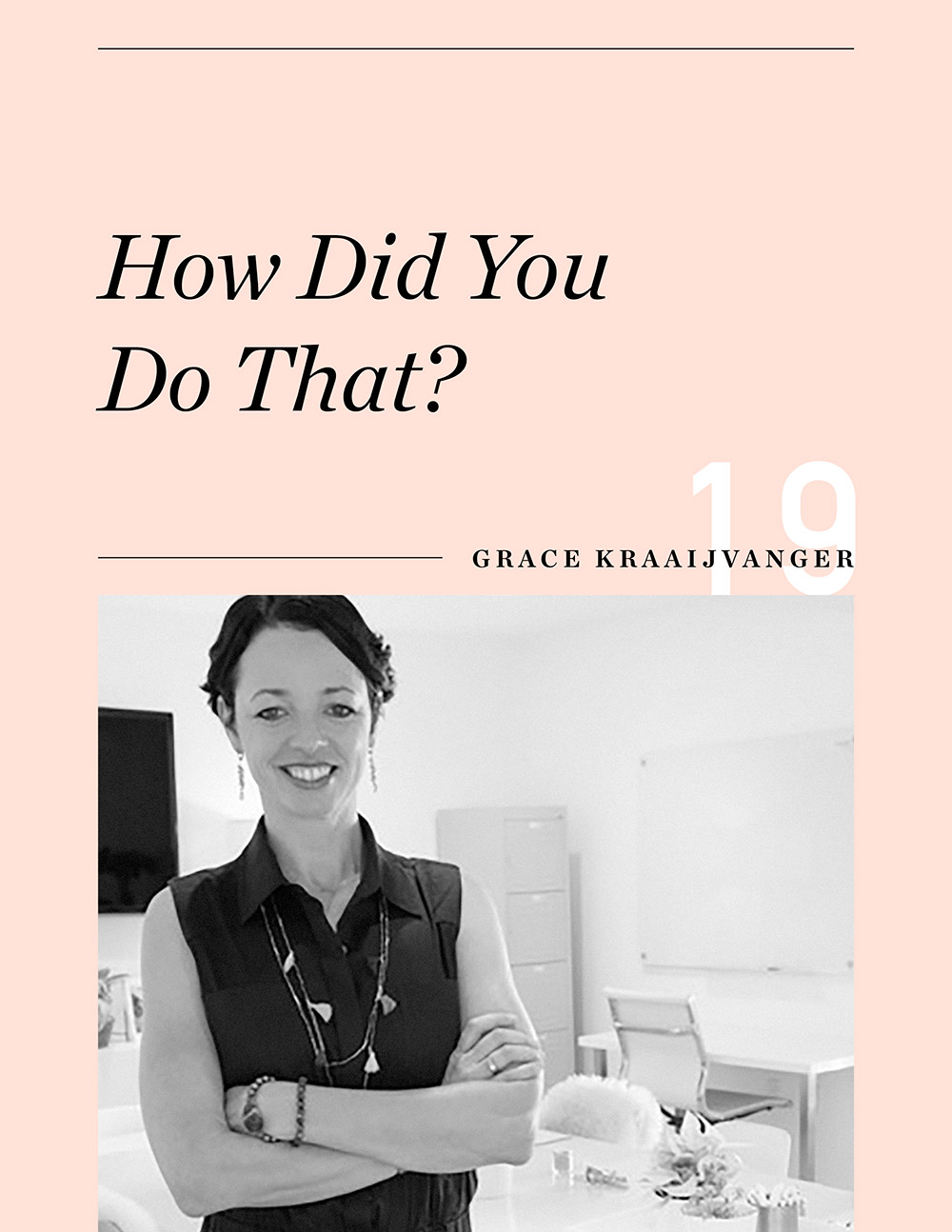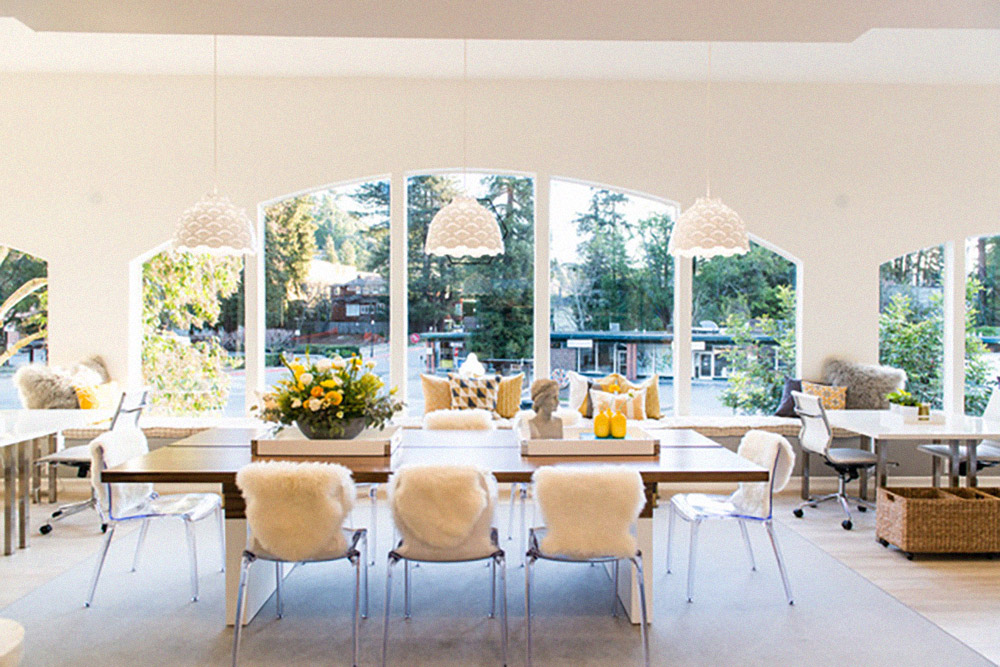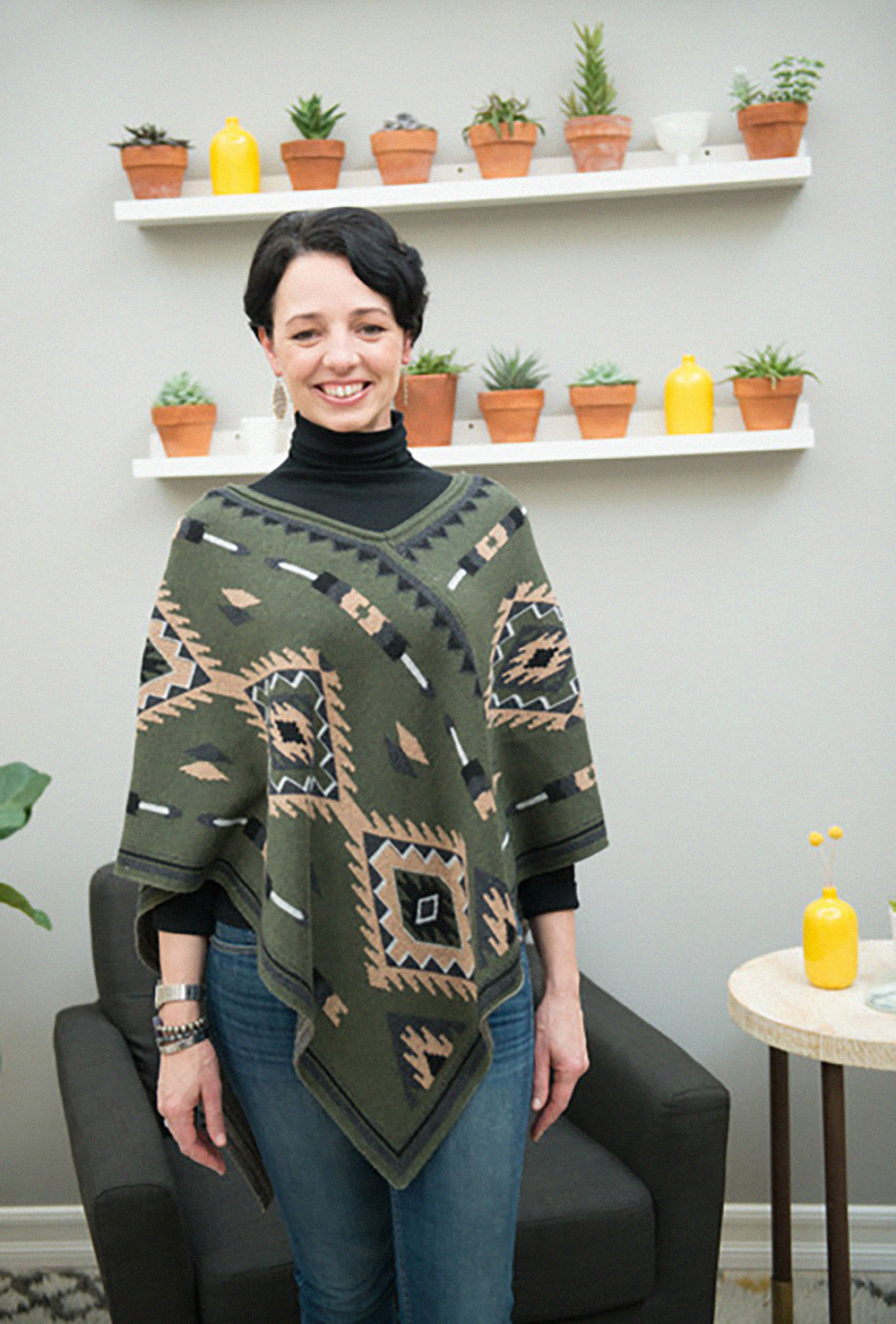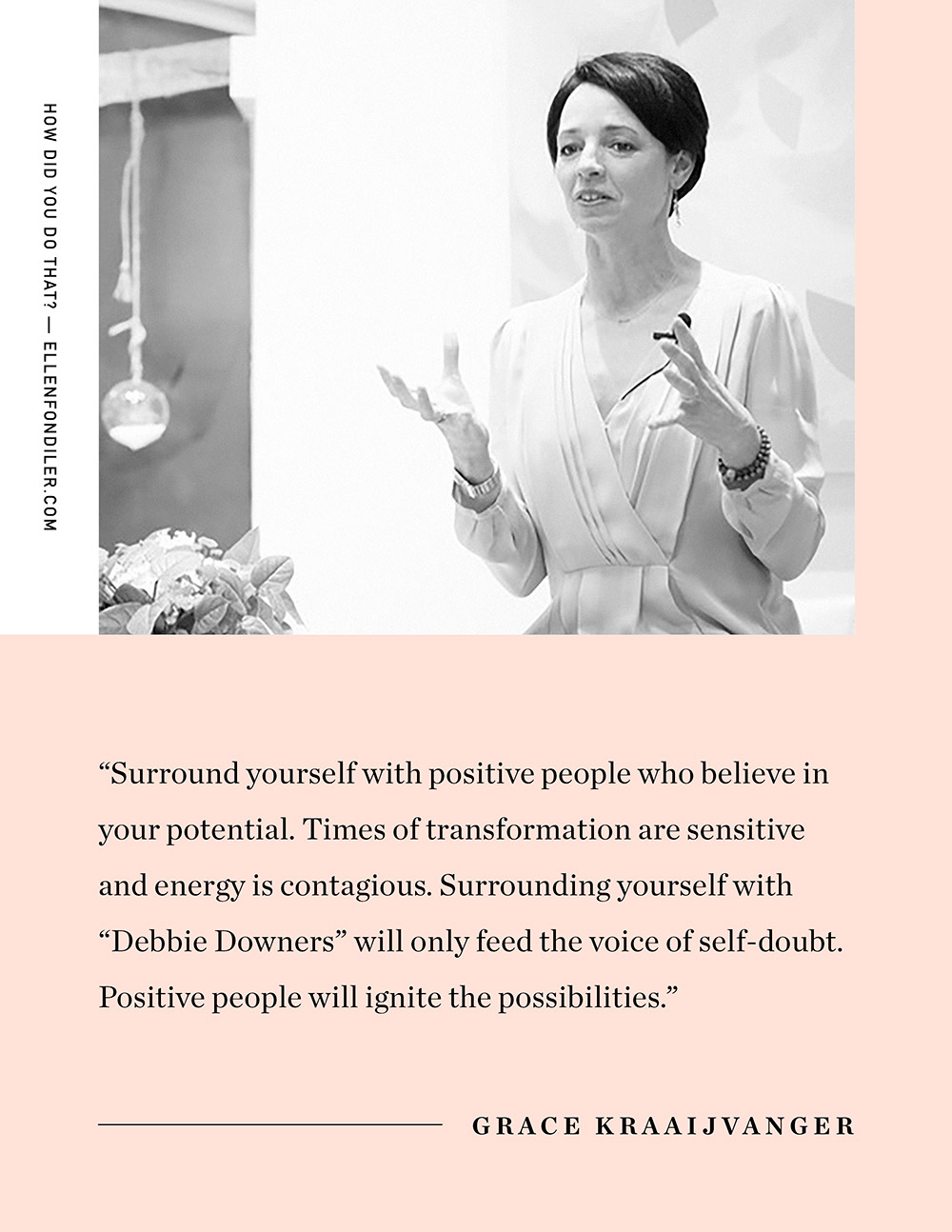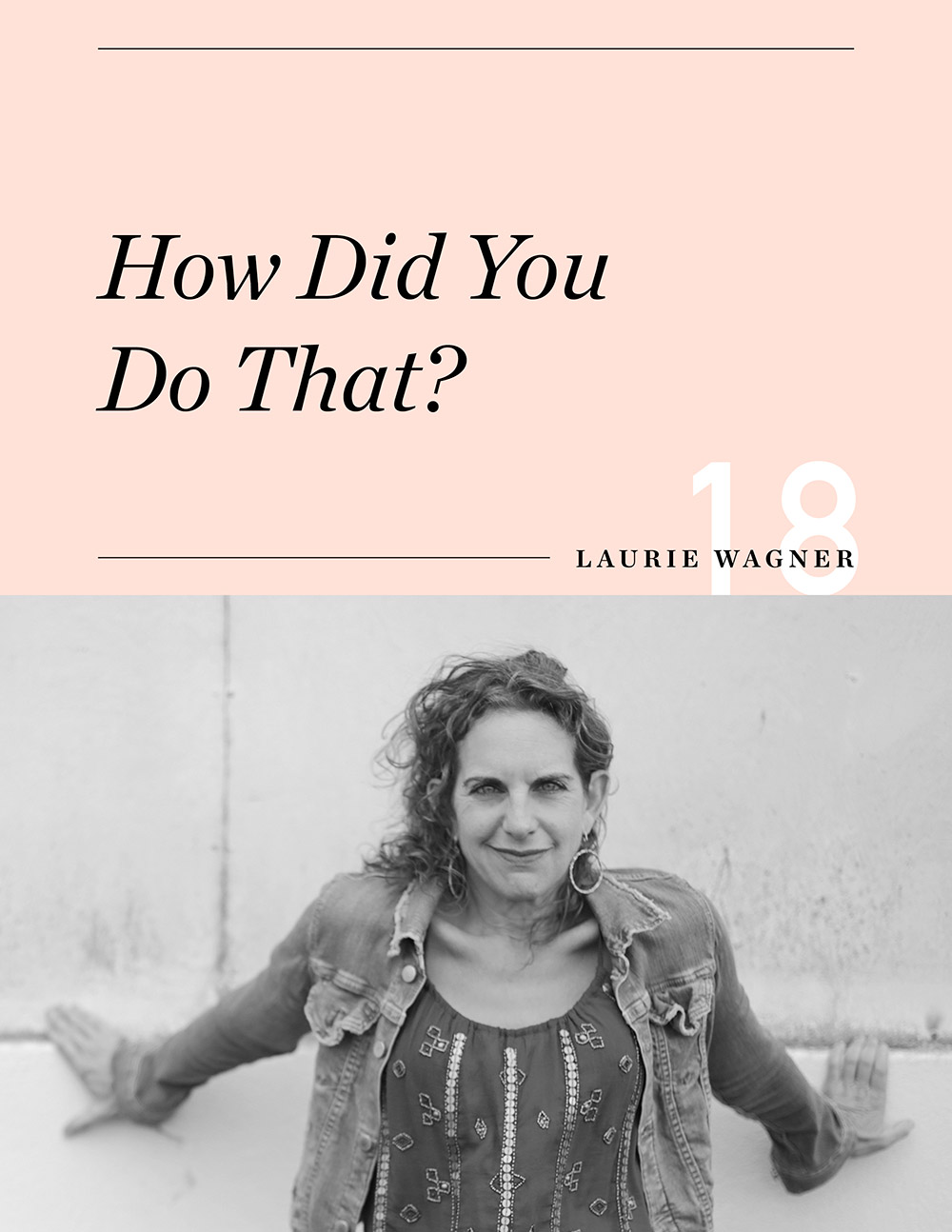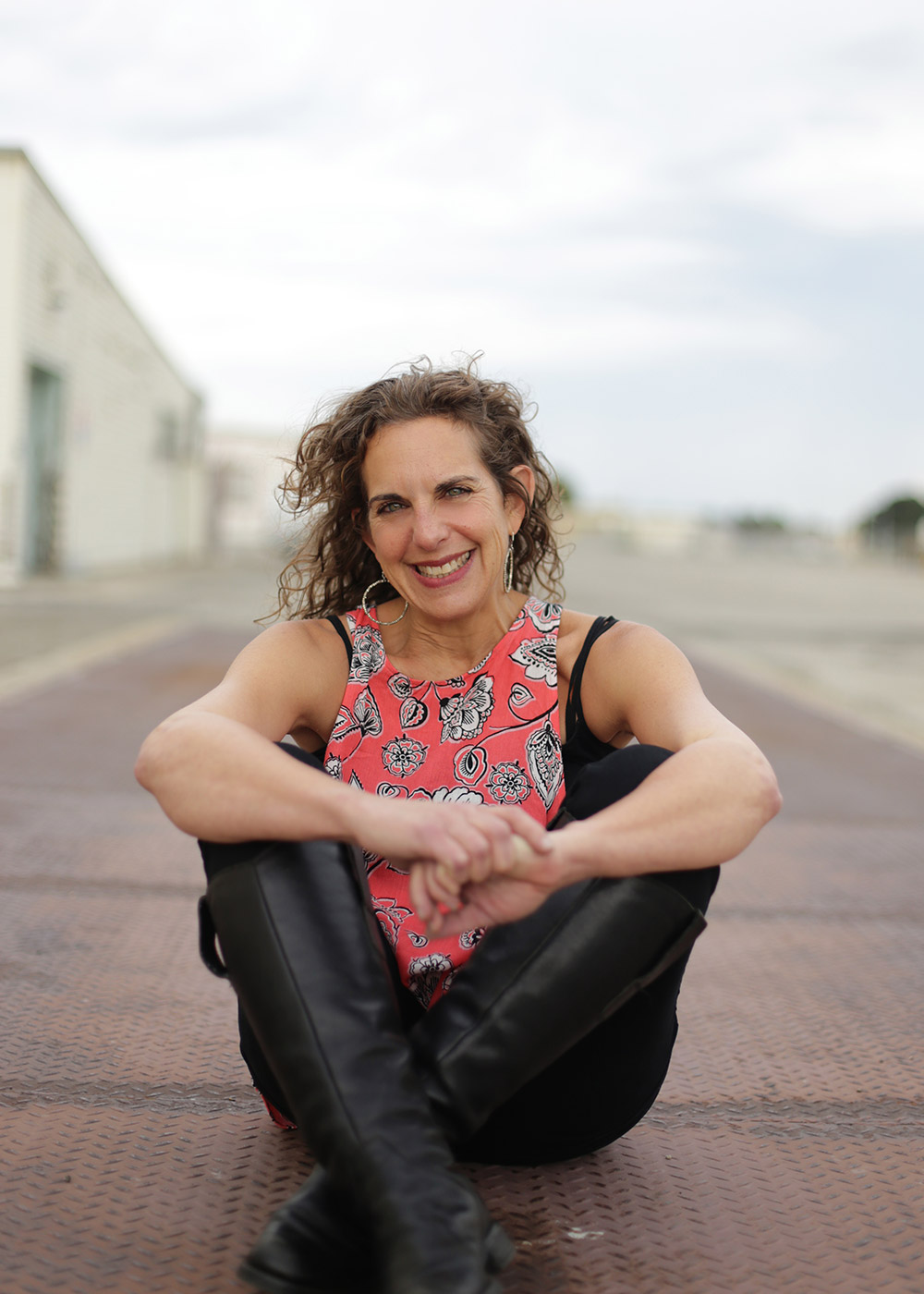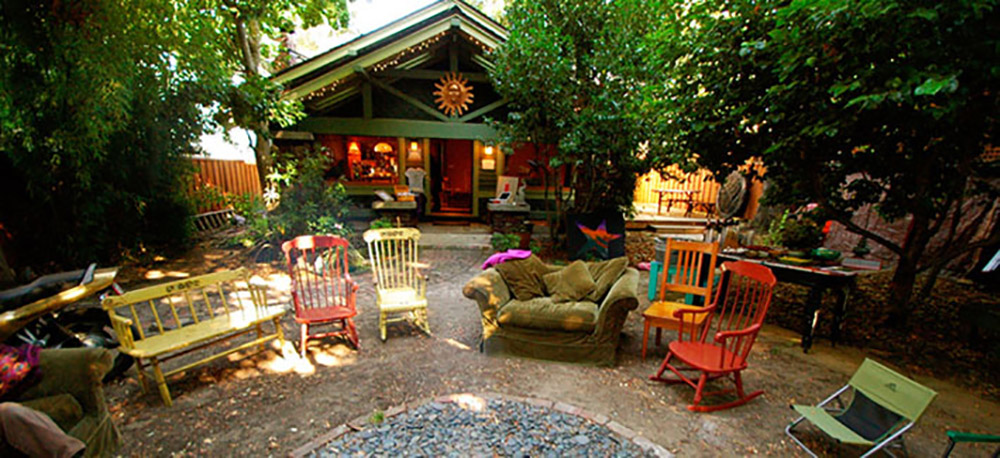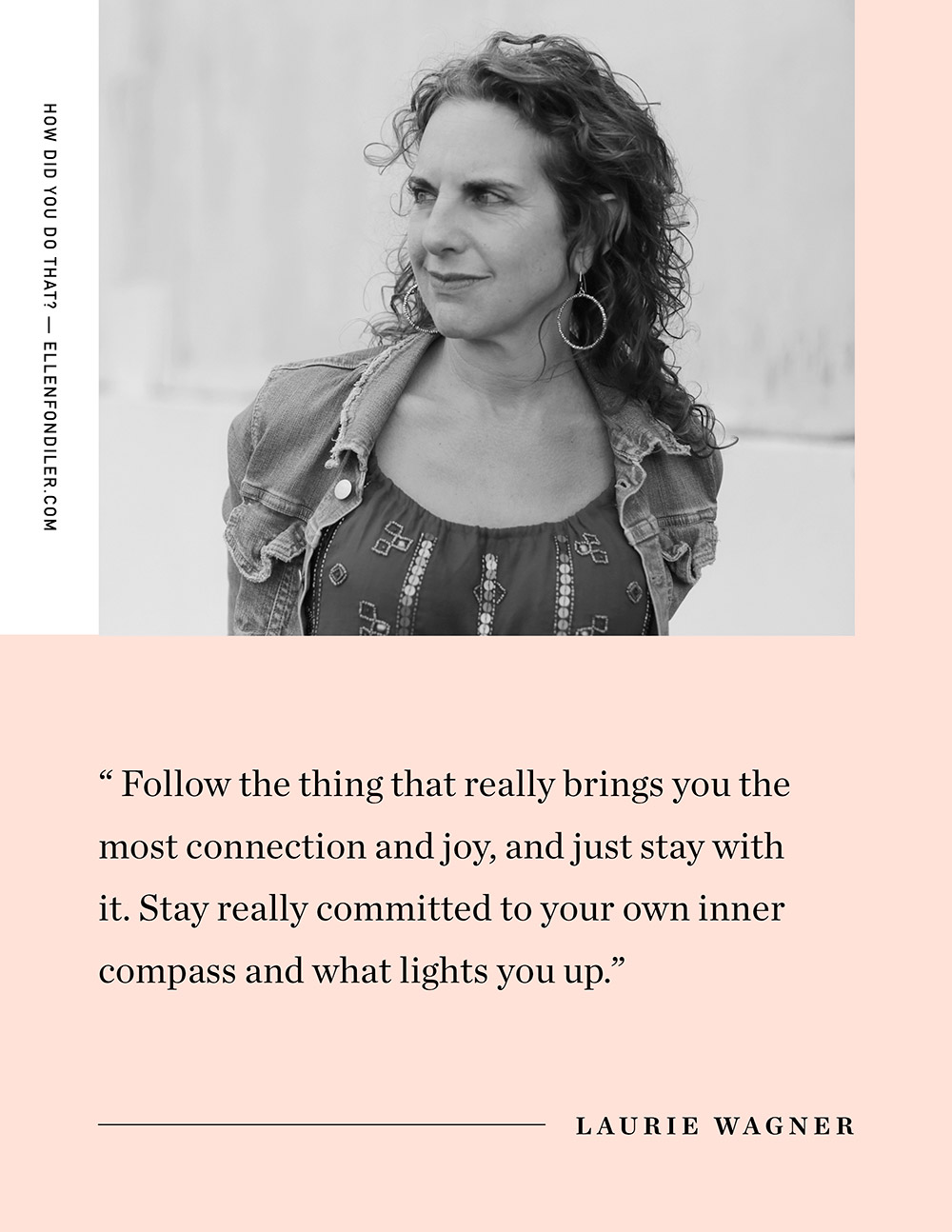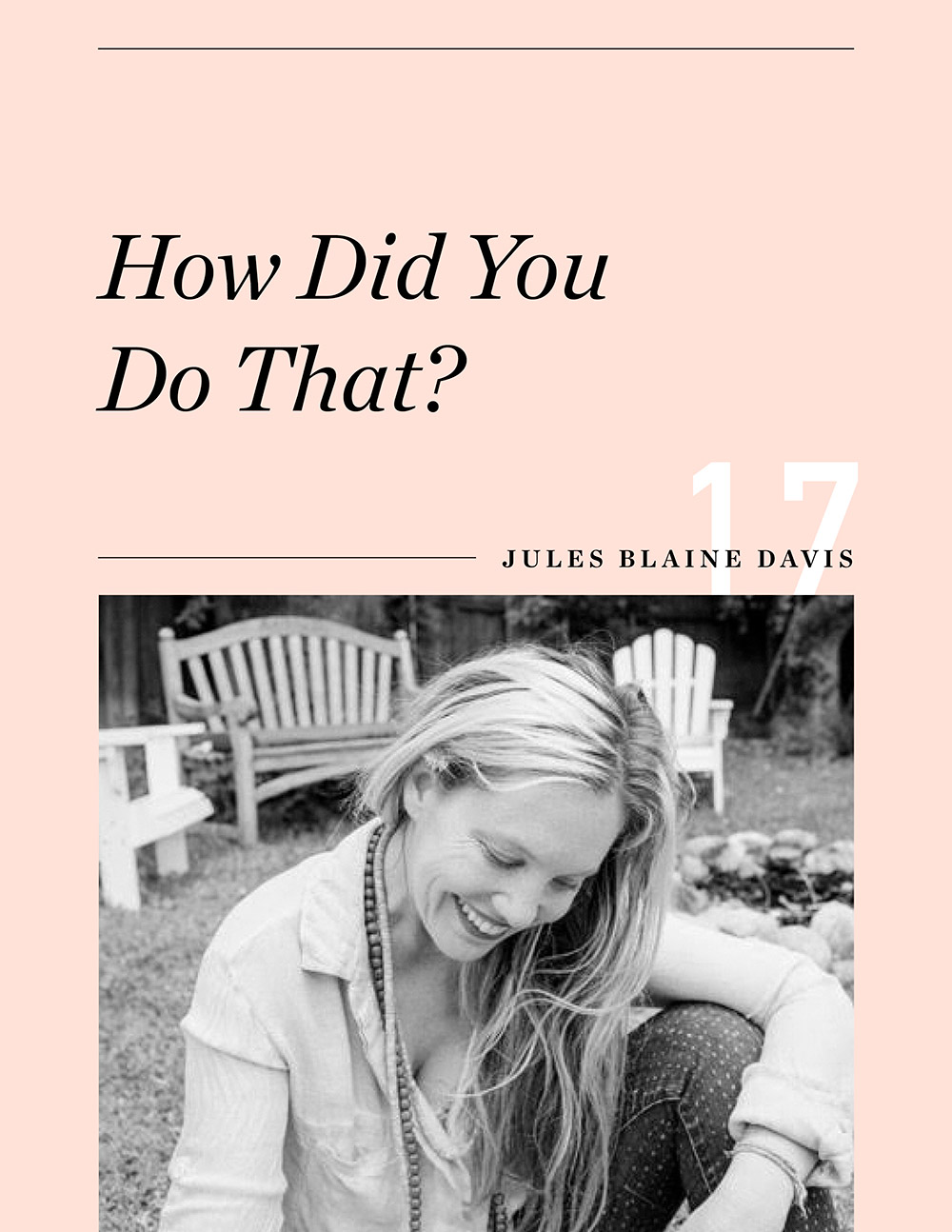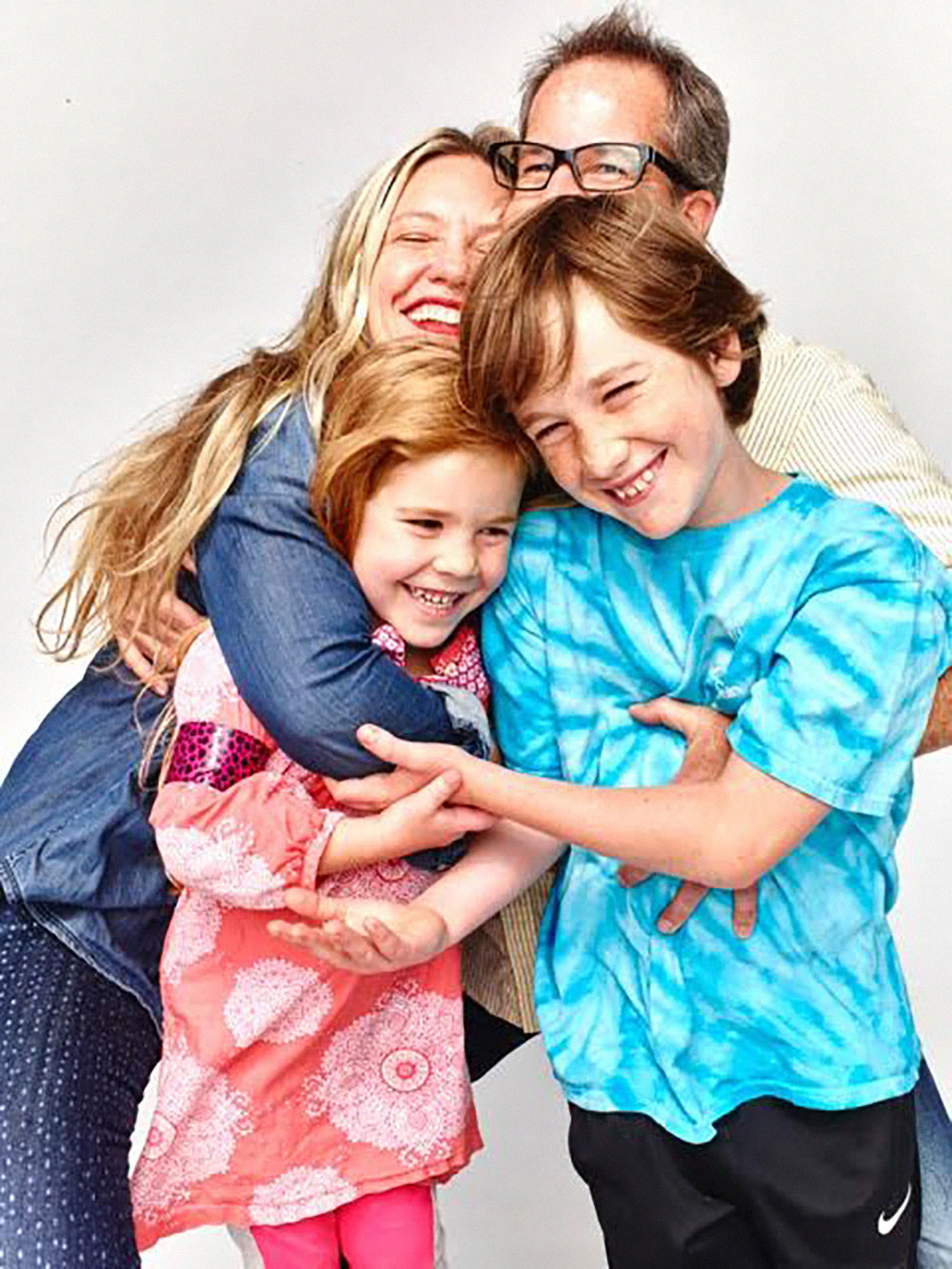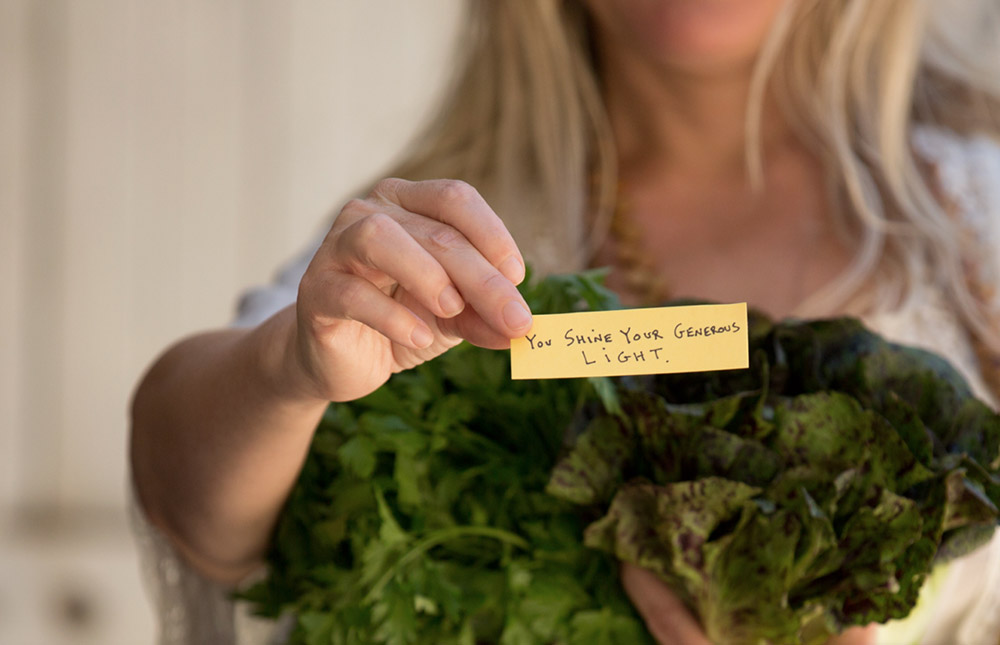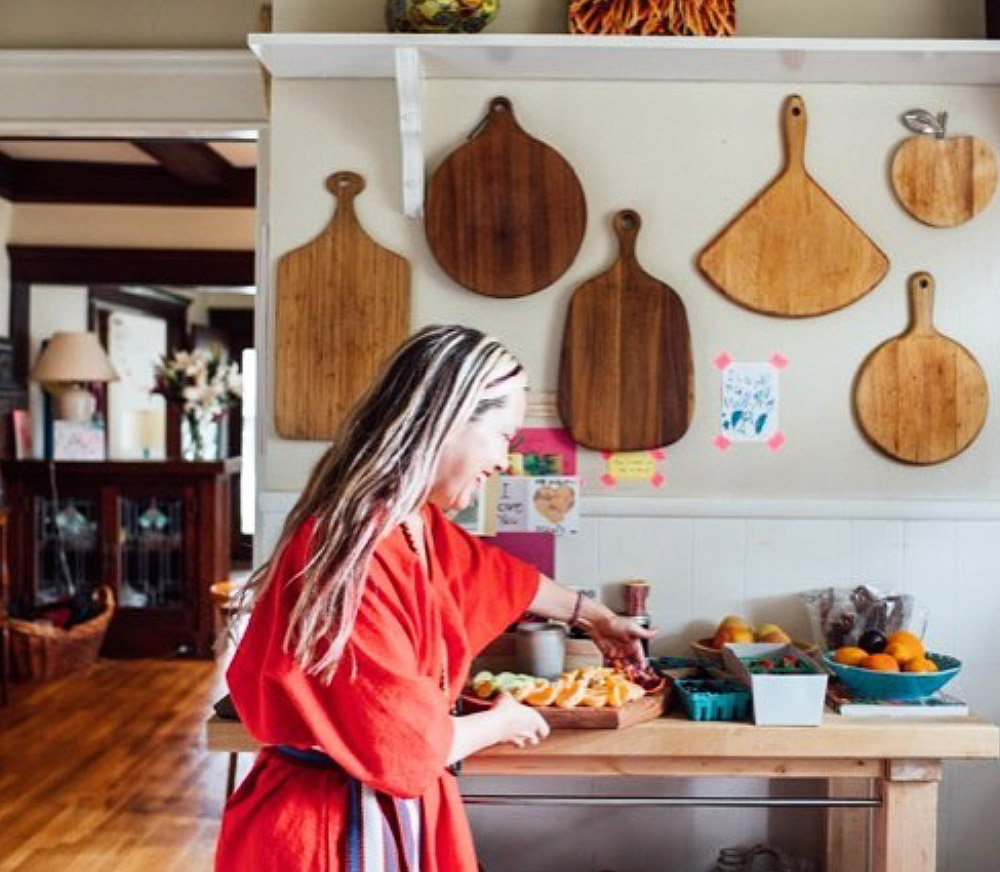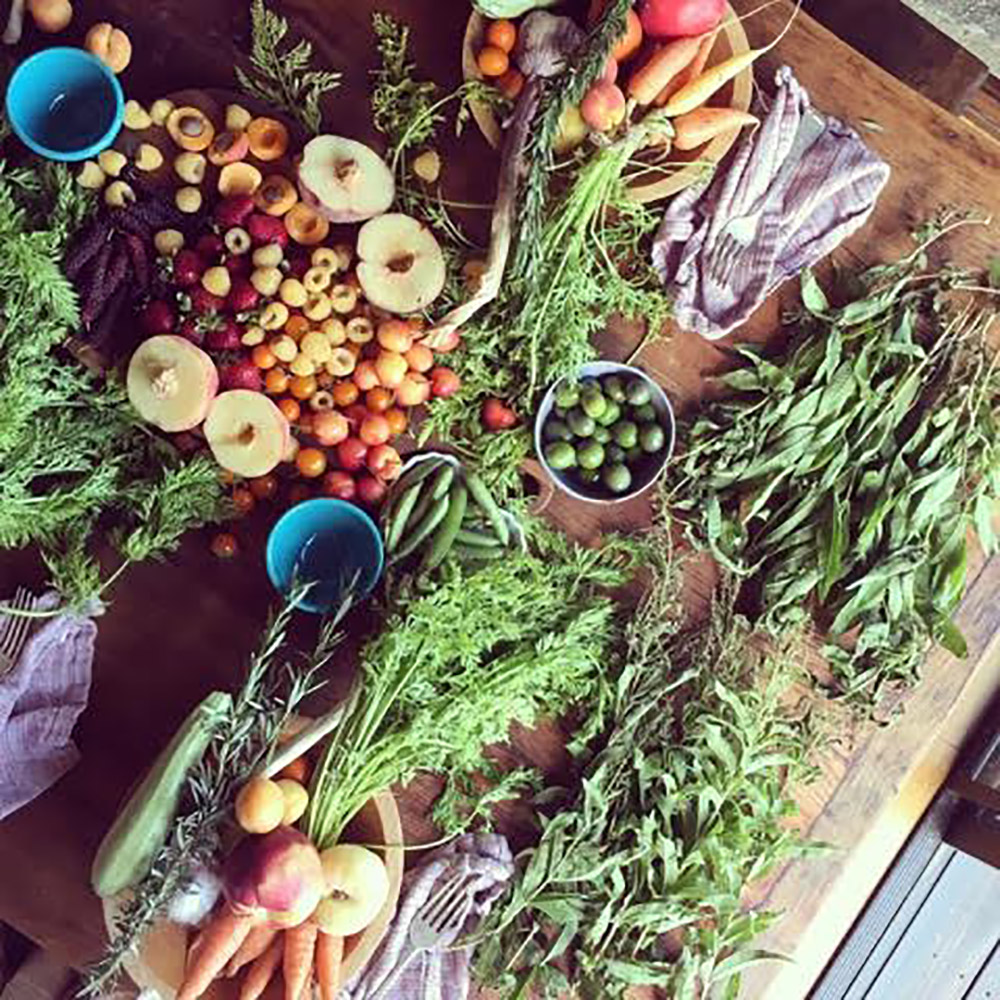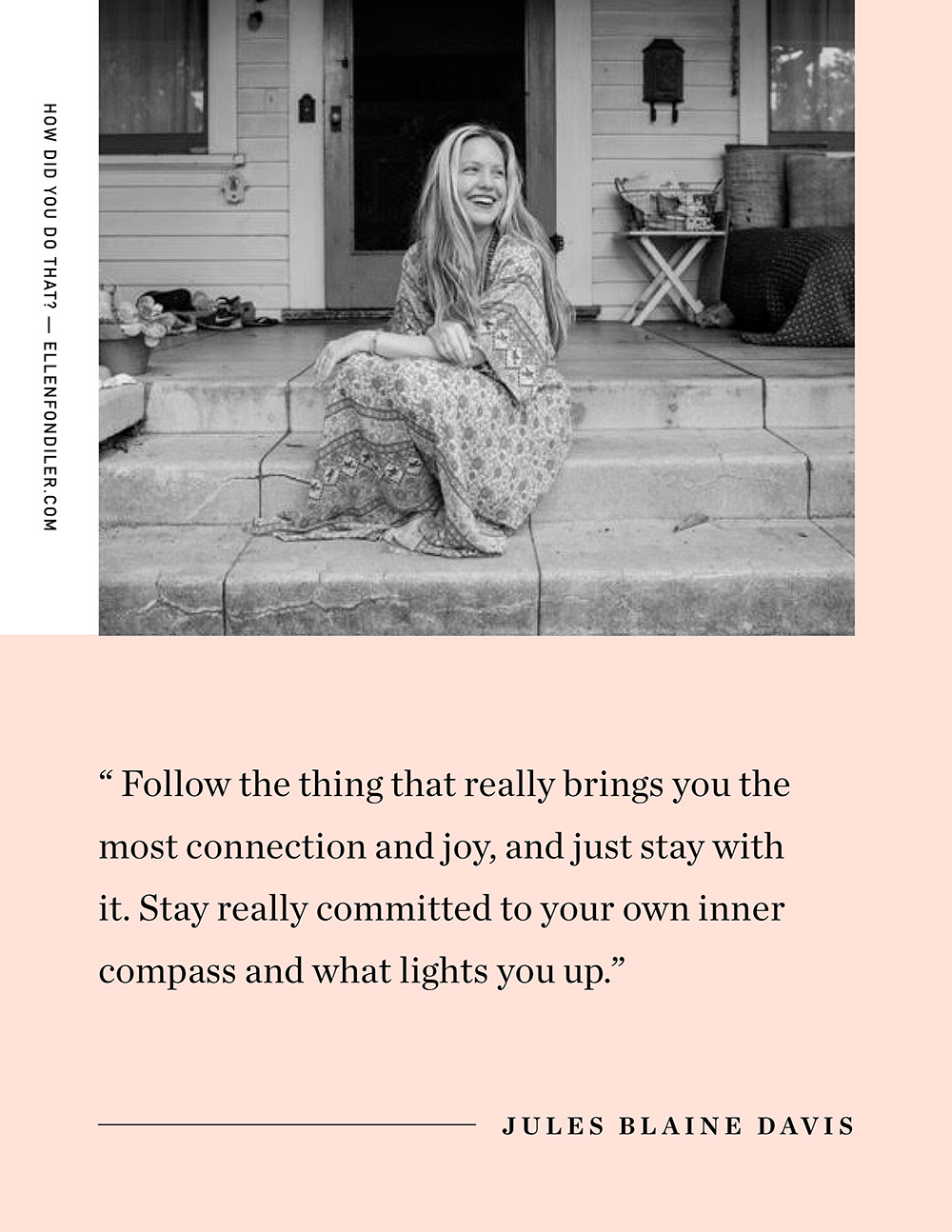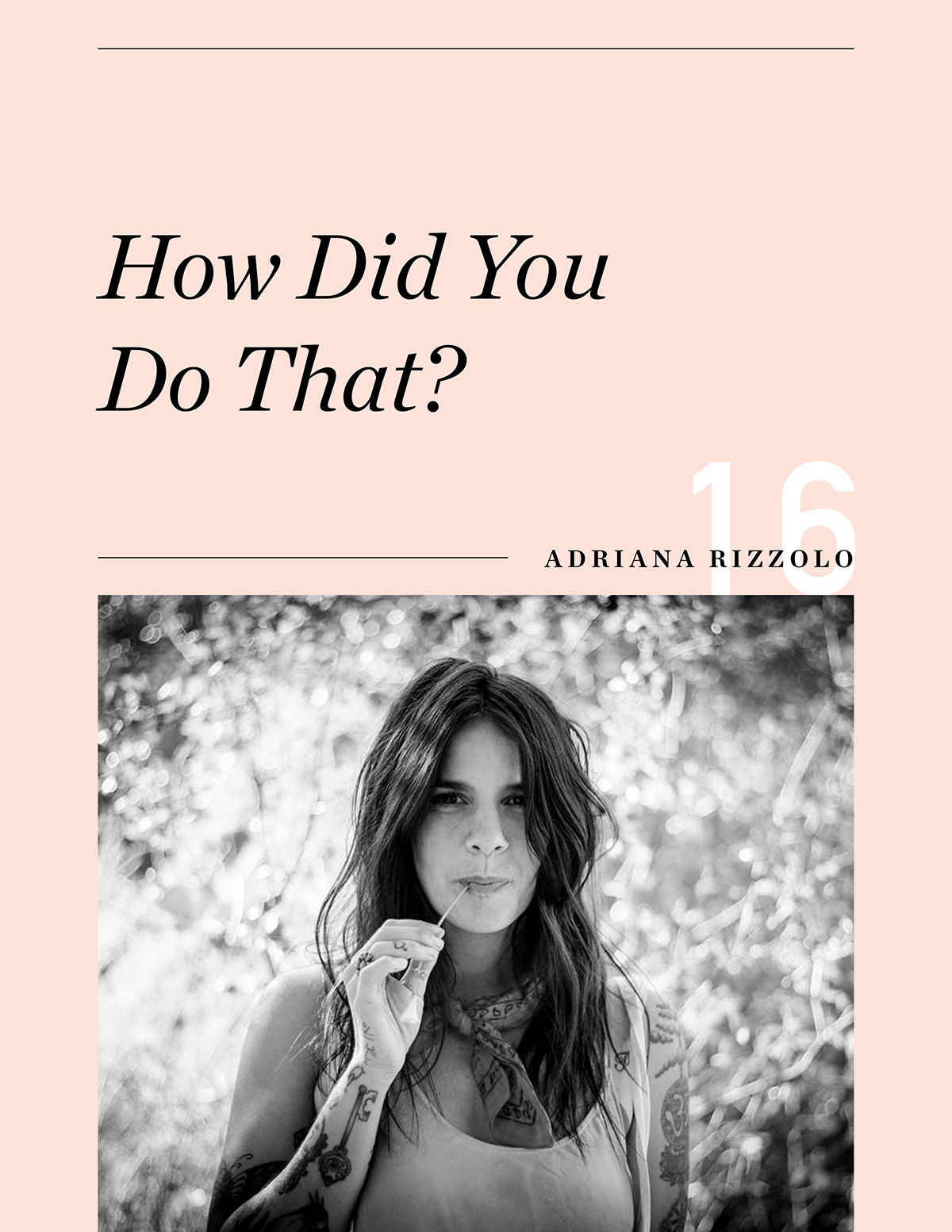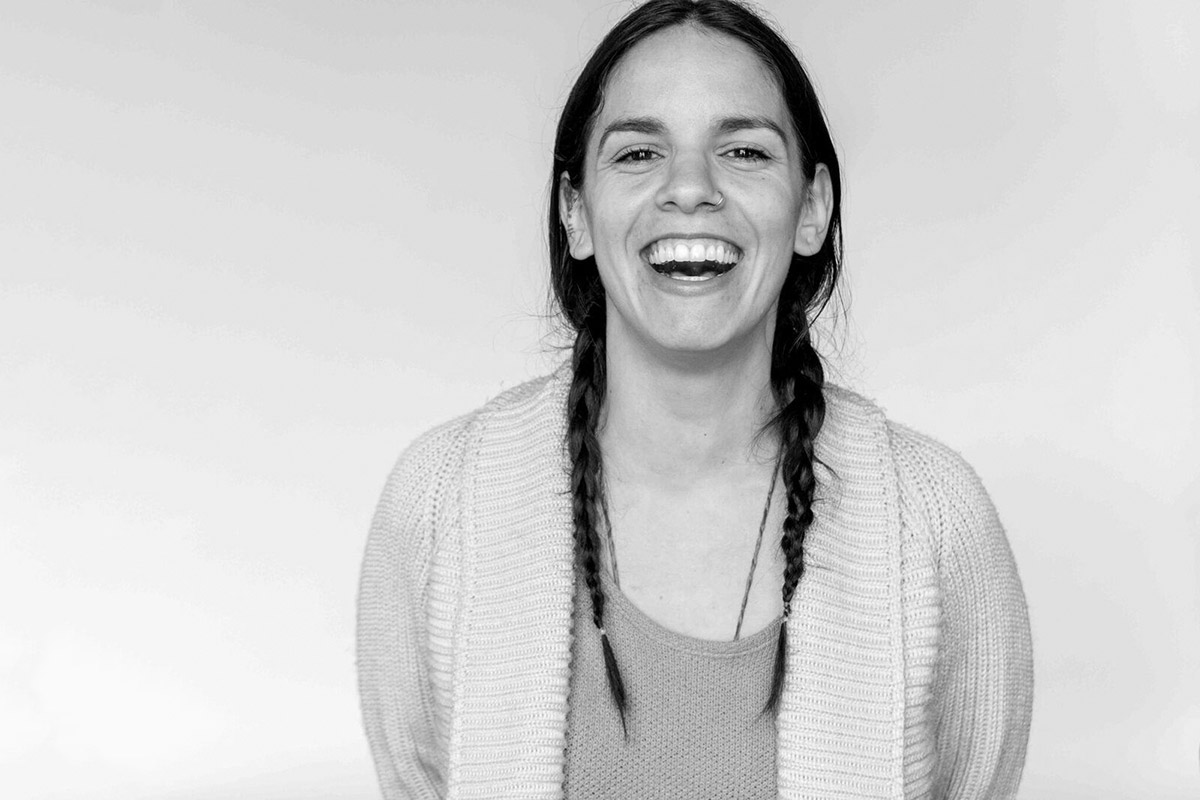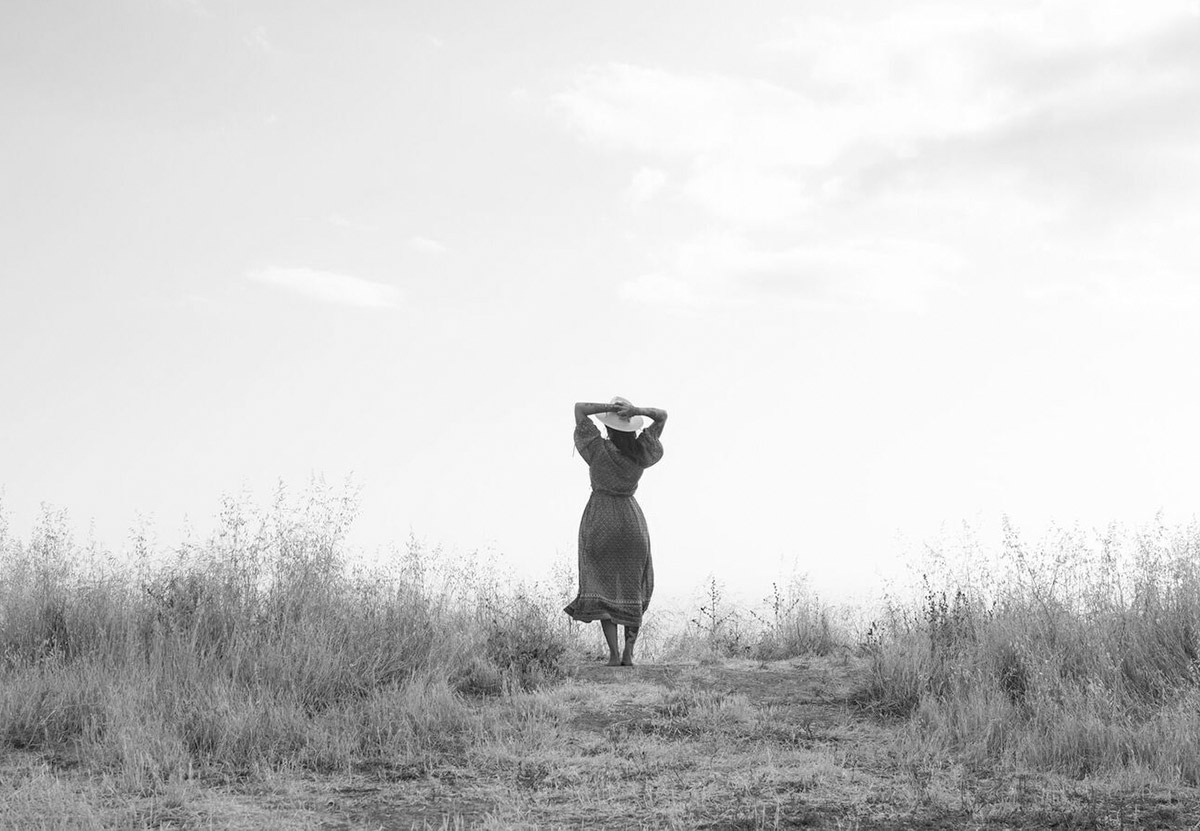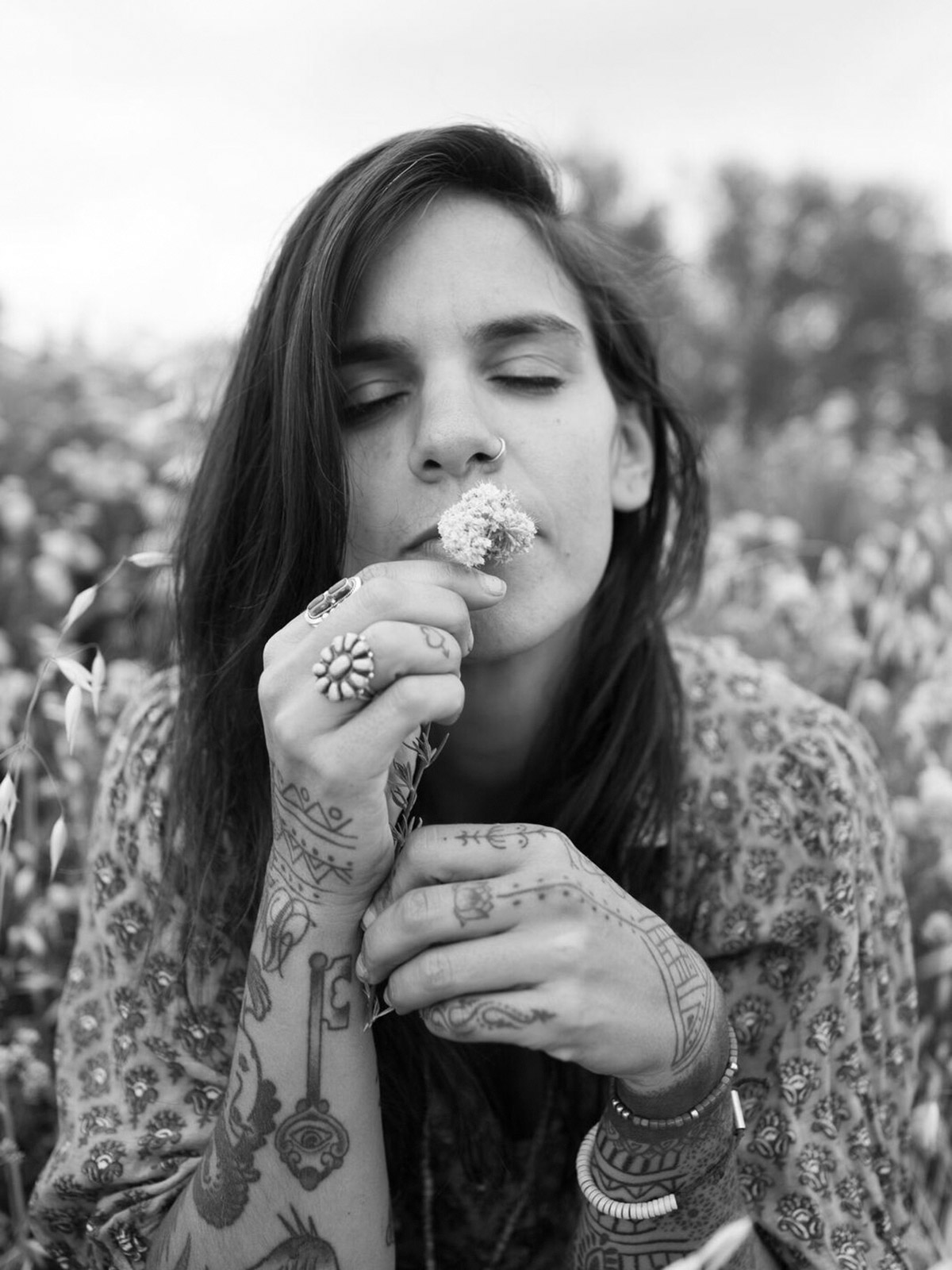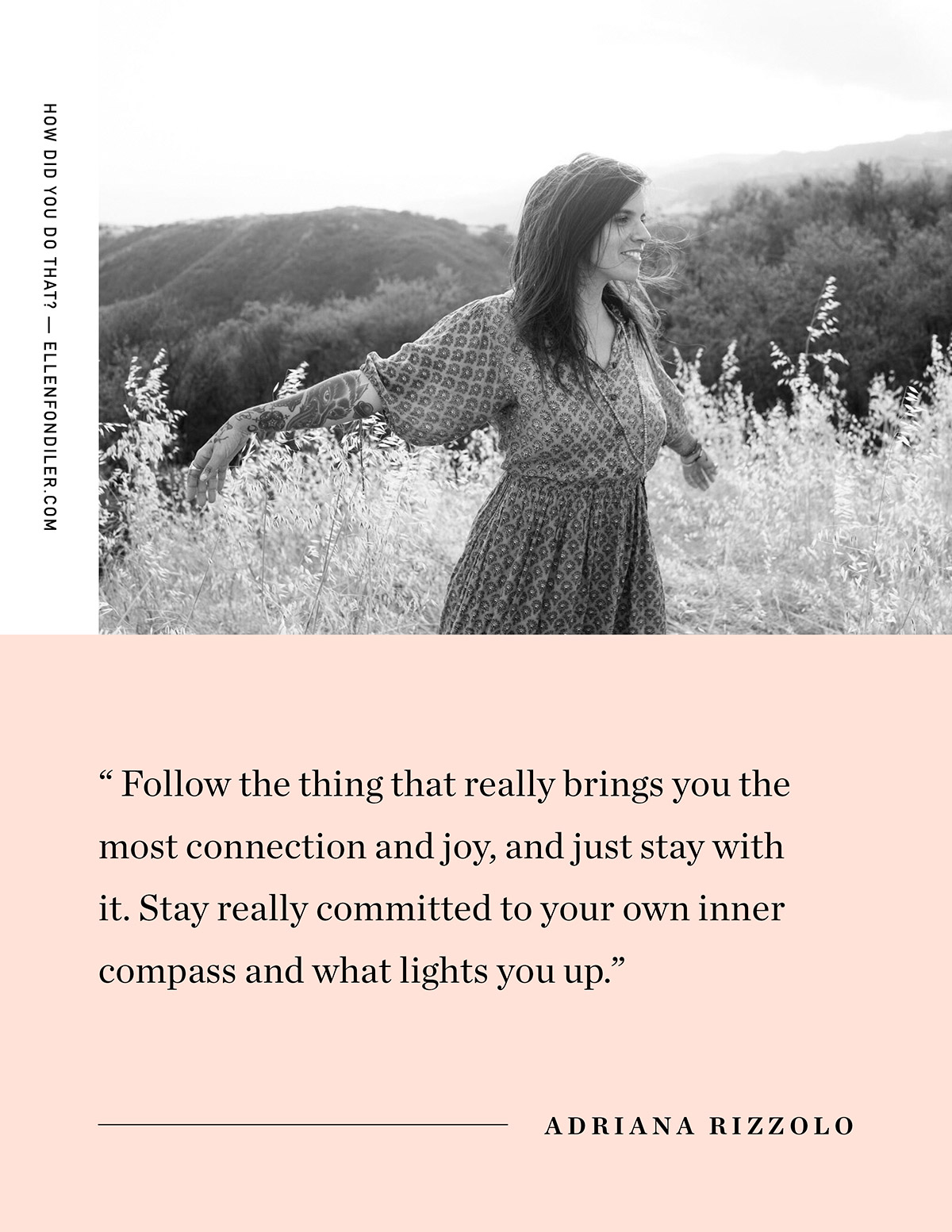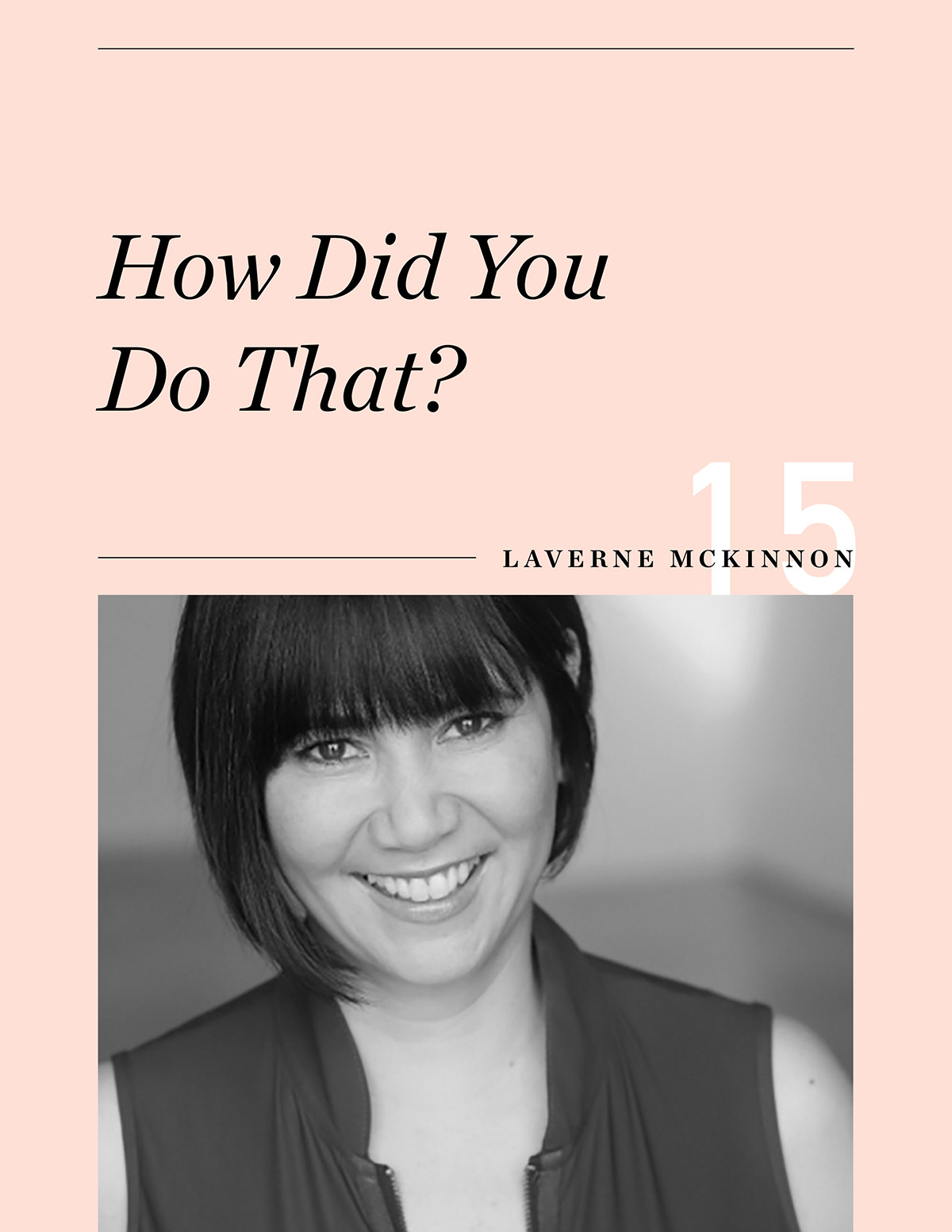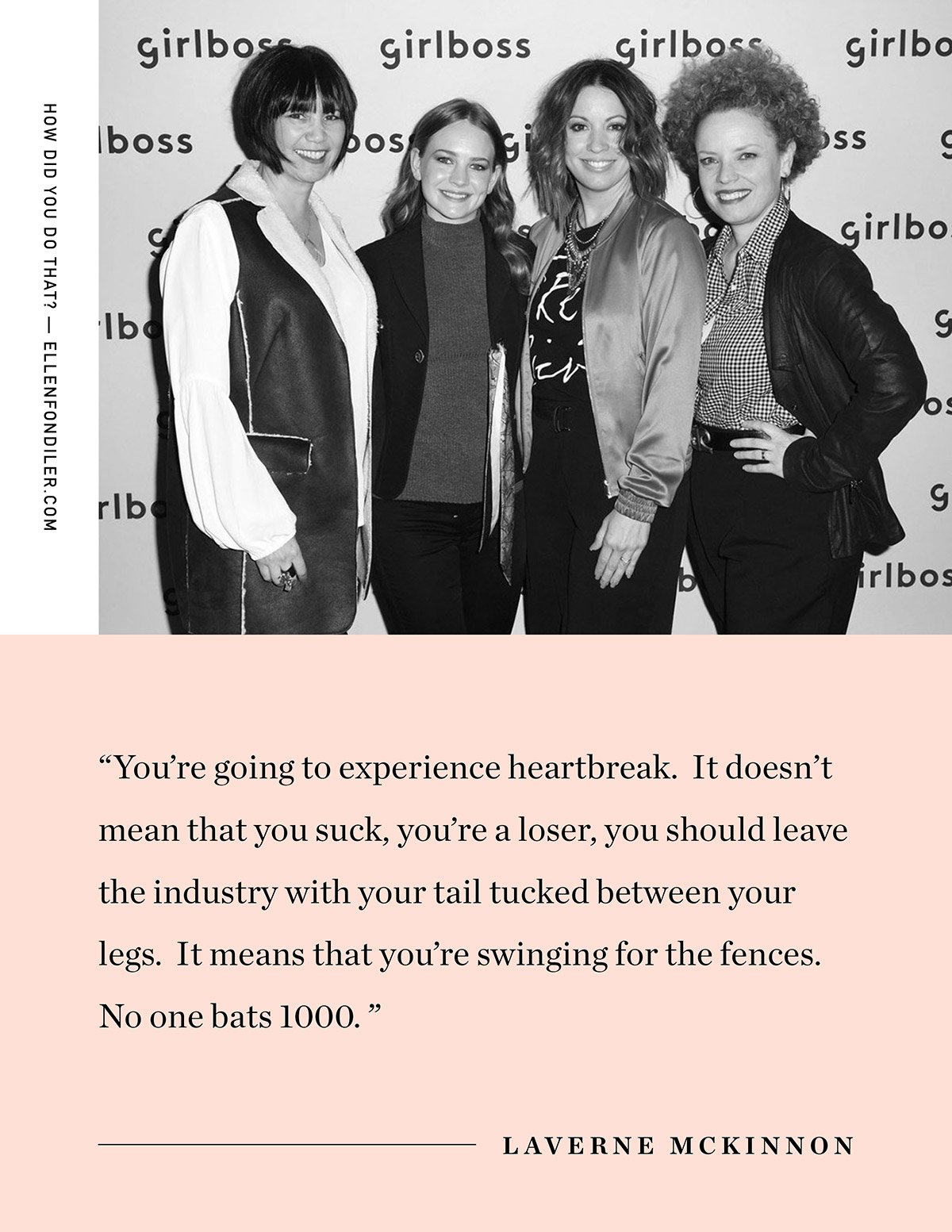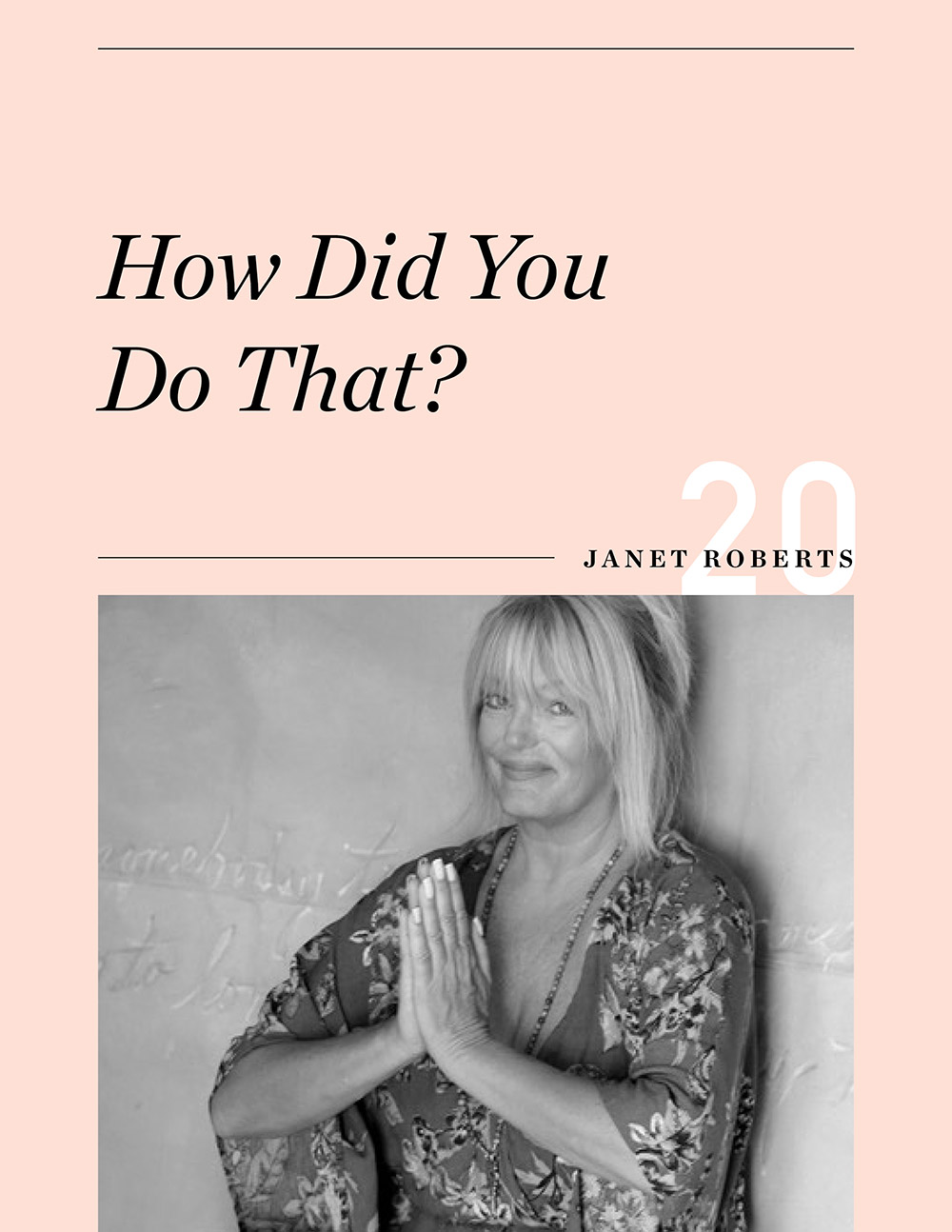
Whenever I meet someone who’s got a really cool job, who runs a thriving business, or who has completed an amazing project, I always want to know: “How did you do that?”
I’m always curious to hear the “behind-the-scenes story” — who they emailed, what they said, how they got their first client, how they got their foot in the door — the exact steps that they took to achieve their goal.
HOW DID YOU DO THAT? is an interview series where we get to hear the REAL story behind someone’s success—not the polished, neat and tidy version.
To see a complete list of all the interviews that have been completed to date, head over here.
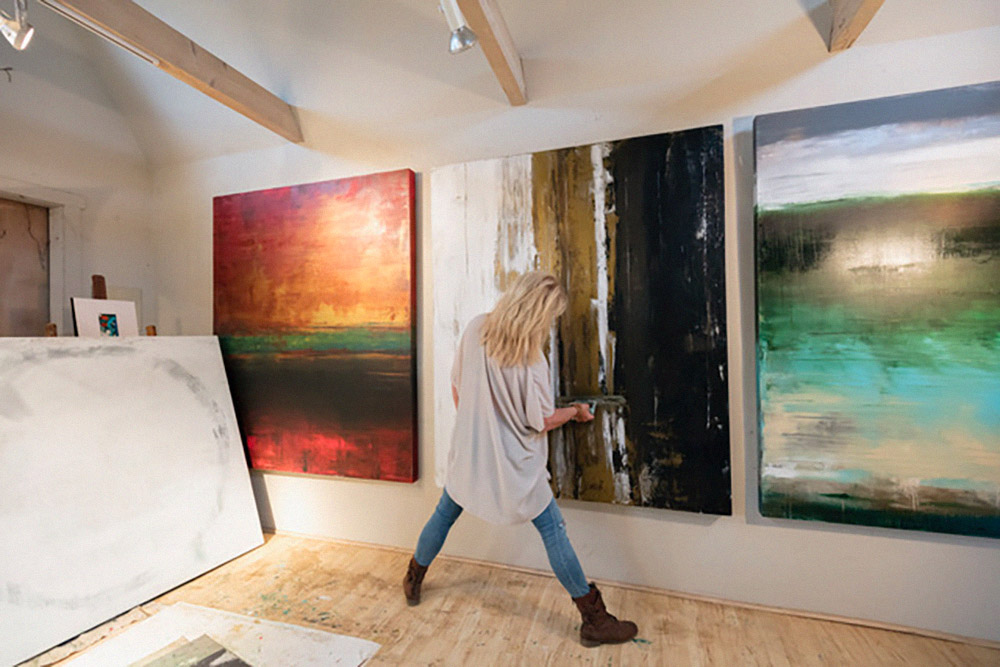
Name: Janet Roberts
Location: Salinas, California
Profession: Artist and Co-founder of Mindful Mats
You’re a full-time artist. You support yourself financially through your artwork. For many people, this is the ultimate dream! Tell us how you found your way into this work.
As a young girl, I didn’t have the fearlessness to be the artist I wanted to be, so I chose work alongside the artists I admired rather than being “one of them.” This led to a 20-year career in art history, first working at The Detroit Institute of The Arts, then at the Los Angeles County Museum of Art (LACMA), and then a career as an art buyer, representing contemporary painters in a small gallery I operated.
For a long time, like so many people, I imagined artists were visited by muses and had tormented inner selves which fueled their imagination and fervor. I felt these people were somehow “different” from me, that they possessed something I did not. However, through the years, I began to see that this simply isn’t true. Anyone can be an artist. To be an artist, one must just commit, and commit fully. Inspiration exists, but it has to find you working.
Twenty years ago, after my third cancer diagnosis, I determined I wanted to become a full-time creator. I manifested that my work would feed my family despite the fears I had. I decided I would give myself one year to find my inner voice, my true work, the work my hands needed to make. After one year—and several hundred paintings—the gestures and the symbols and the icons became mine.
It was challenging to transition from art buyer to artist, but I feel it was a perfect unfolding and just the right direction in my evolution toward a successful and fulfilling expressive life.
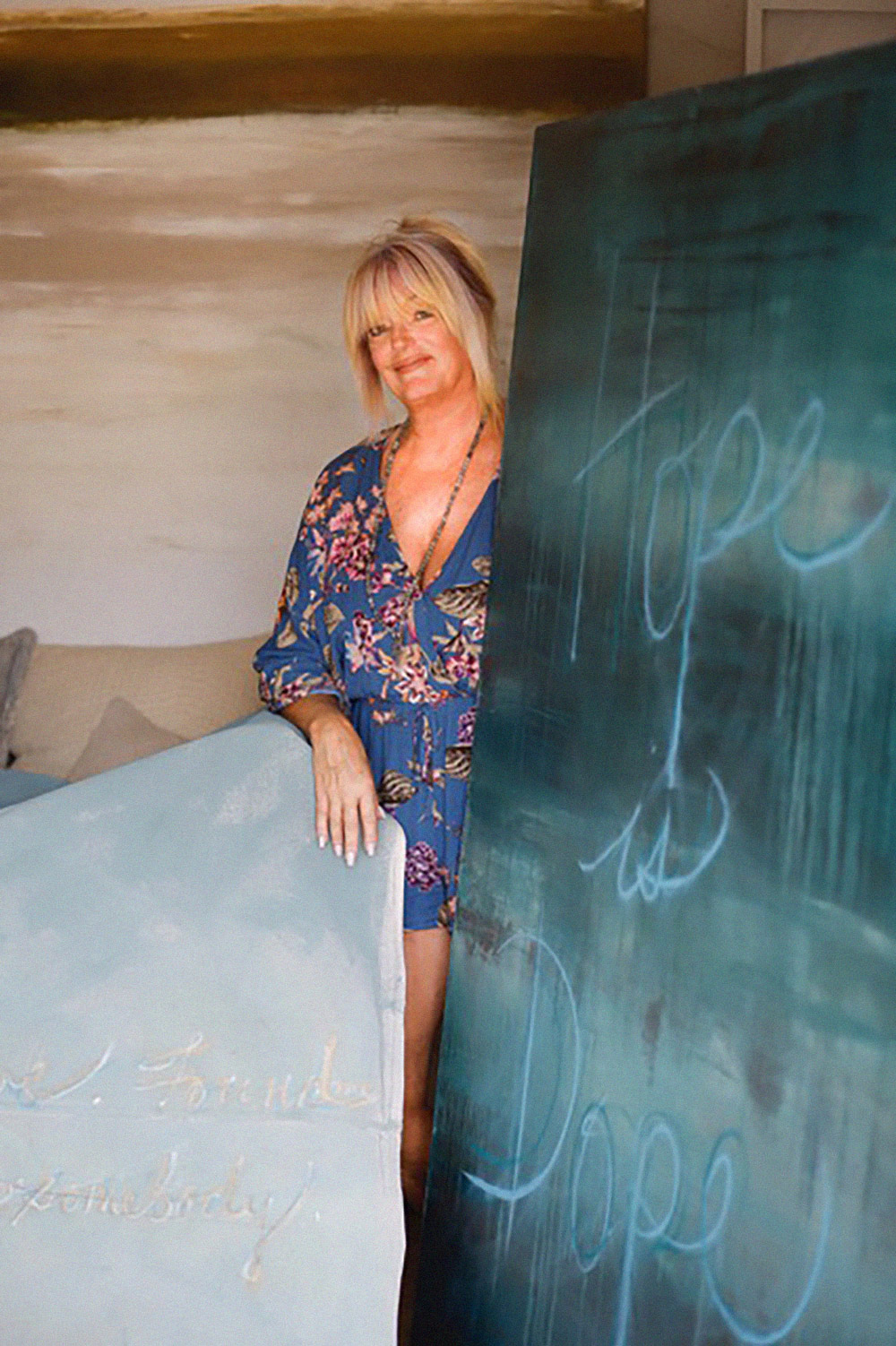
You mentioned your battle with cancer. Your mom faced cancer, too. How have these challenges impacted your life and career?
Cancer has been both a blessing and a curse.
The curse…
My Mother suffered from cancer as a young woman, and was diagnosed manic depressive as a young mom. Looking back, it was most likely post-partum depression that went undiagnosed, but she was treated with Lithium. I was a child of the ’50’s—a victim of my mother’s chain smoking, drugs, and drinking—at a time when society seemed completely void of any “common sense” when it came to health.
My childhood was difficult. My mother was frequently ill and I was left, as the only daughter in the family, to pick up the household slack. I was preyed on by my maternal uncle from age 11 to 16, when I finally stood my ground and he stopped. The adults in my home never felt safe, and so I turned to academic mentors for support and guidance. I helped raise my three brothers as best I could, and then at 17, I left home with a college choral scholarship to USC.
The blessing…
Being a four-time cancer survivor myself, cancer has provided me an insight to my deep inner life. It helped question my intention. It asked me to understand and learn my true north. The disease provided a door into a world I did not know: mindfulness. I learned my higher purpose, my will to forgive and love, to see gratitude everywhere, and to encourage others everyday to see their own infinite possibilities. I became the mentor my young self so needed. In this way, cancer has been a gift.
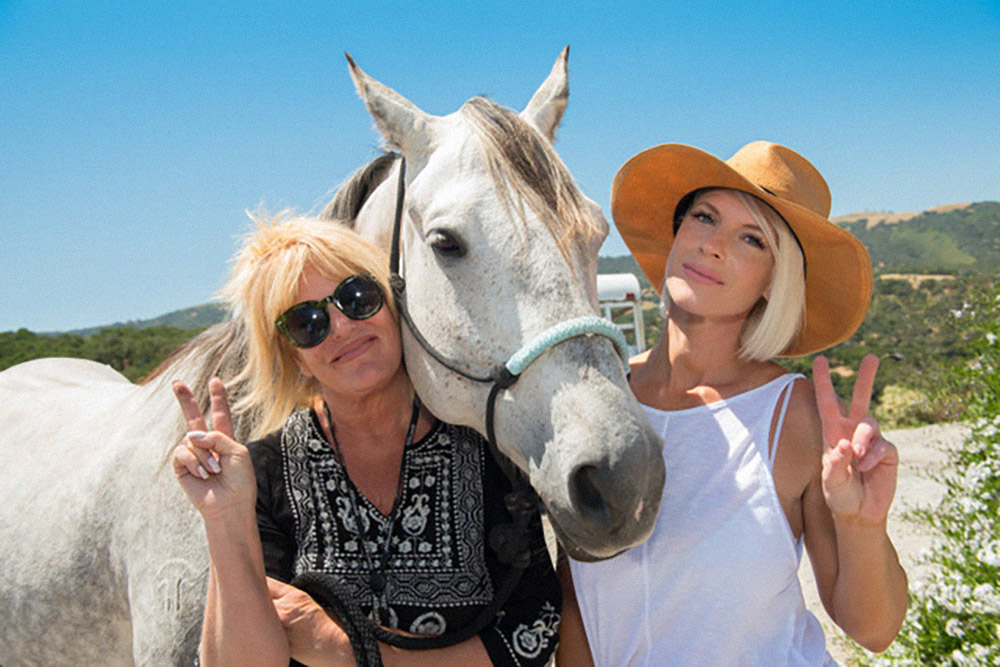
You have four amazing daughters, three grandchildren, and your home and studio are off the grid. You compost. You recycle. You have an organic garden. You’ve created a very beautiful, intentional life. I’m curious to know if you have a morning routine, and if so, what is it?
Every morning begins with my Earl Grey and my horseback ride. Then I stretch, do my yoga, and meditate for 30 minutes, after which I make beds, fluff the sofas, and walk outside to sort out the garden, the decks and the many sweet seating areas around my home. I have as much furniture outdoors as I have inside!
My dog and I feed the horses, water everything that grows in a pot, and then share our avocado on toast and an egg.
Then we walk down to my studio and begin our day, answering emails, phone calls and preparing the day’s work. I try to execute at least two paintings weekly, and I draw and write in my sketch pad every day, always seeking out new ideas and innovations.
When you’re making a custom painting for someone, what is the process? How do you get to know the client and their tastes, and what they might like?
Often, I work with designers and they make the process painless with palettes, swatches and room renderings. Corporate clients—like hospitals and hotels—always have interior professionals. They know exactly what they want and I have no ego when asked to execute something specific. Often in the commission, I find a new direction, breaking free of old shackles, colors, or styles. Other times, I meet the patron and we discuss many of the same ideas but with their wedding vows, or a special affirmation or a poem or a song or even a rap lyric embellished for influence.
I also create legacy paintings for family members who have recently lost a loved one. Together, the family composes a picture with words, icons, symbols, and colors inspired by someone they lost. This painting remains in the core home, and often Giclée prints are made so other family members can view and enjoy it. There is so much love in those paintings.
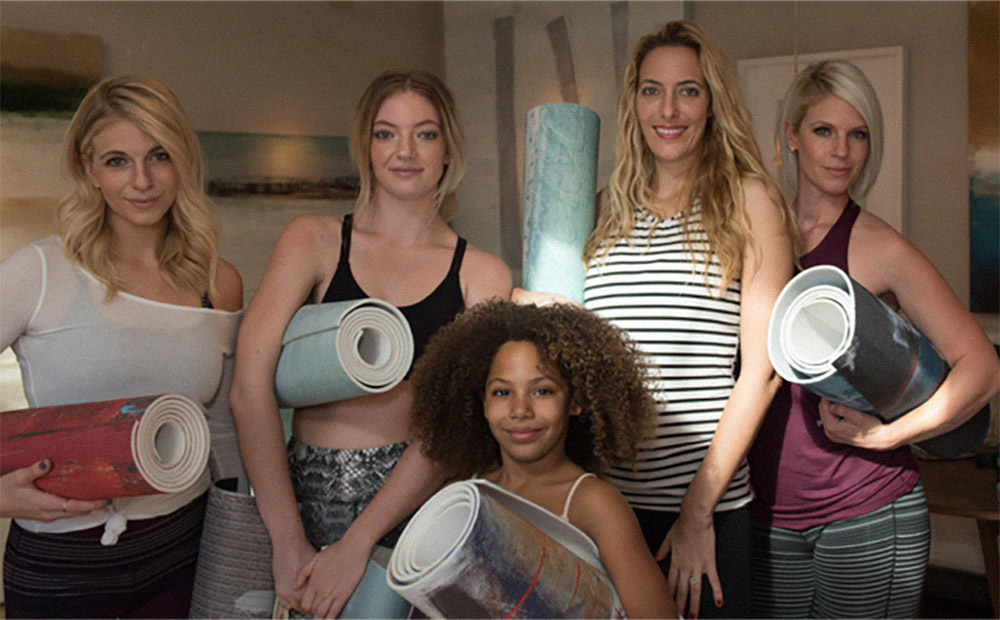
You give 50% of your earnings to non-profits and charities. That’s an extraordinarily generous thing to do. Talk to us about this decision.
Twenty years ago, when the Internet began sharing artist’s work on websites, and the artist/gallery model began shifting, I found myself examining the idea of who I was sharing my proceeds with. If I was giving 50% of each painting sale to someone, who did I want it to be? A gallery? Or my community?
It seemed to me, sharing with my community was the only answer. I began exhibiting my work in collaborations with non-profits I admired. Sharing 50% with them seemed a beautiful “karmic” thing. Some of them are green charities like EMA who plant gardens in at-risk urban schools. Most of them are mentoring non-profits like The Boys and Girls Club and Buddy Programs throughout the country. I also promote meditation and mindfulness in after-school programs and as an alternative to detention.
To date, I have helped raise over $1.8 million dollars for several non-profits, all of whom share my intention of growing a better planet and a whole child. This feels so right, because I know and see the impact these programs make.
You recently started a company with your daughters called Mindful Mats. Tell us about this project. How’s it going so far? What are your future plans?
All four of my daughters—and now my three grandkids—practice yoga and meditate daily. Each has their own unique way to practice, but we are each devoted to mindfulness. Hannah, my eldest, suggested to me that I take my catalog of 1,000 images and print a few on yoga/meditation/fitness/beach mats. It made complete sense since most of my patrons are also mindful people who practice yoga and meditate. And what better way to help non-profits during my painting workshops with the kids… creating meditation mats for them from their own artwork!
We researched eco-sustainable, recycled rubber mats. They had to be printed with soy ink and be made in America. After several prototypes, we now have the perfect product with beautiful images that people are really responding to. Cost is the only challenge as they are made here, printed here, and most other competing mats are made in China. So, profit margins are slim, but Hannah—who is driving this little engine-that-could—knows we aren’t really in this to make lotsa money. This is an absolute passion project.
We are heading to Aspen for the Lead With Love event to sell these mats in their marketplace. Influencers like Marianne Williamson and Deepak Chopra own our mats, so it’s a good fit. I also have a solo show there in a gallery that represents me, so the timing is perfect. We have no idea how the mats will sell there, but we are hopeful the patrons will love them!
We just launched Mindful Mats in March of this year, and these things take time, but having the mats available elevates my work, and reminds collectors who I am and what I do. Collaborating with other fitness clothing and jewelry designers has been exciting. And I adore hanging out with my girl tribe when we do events and share ideas and take trips. They are my inspiration, after all.
Who are your role models and why?
Survivors. Victims who rise up and triumph. Encouragers. Anyone who sees the magic despite their trauma or tragedies. People who love and forgive and who are fearless in the face of adversity. Anyone willing to assist those in need, who have less, and who reside on the fringes.
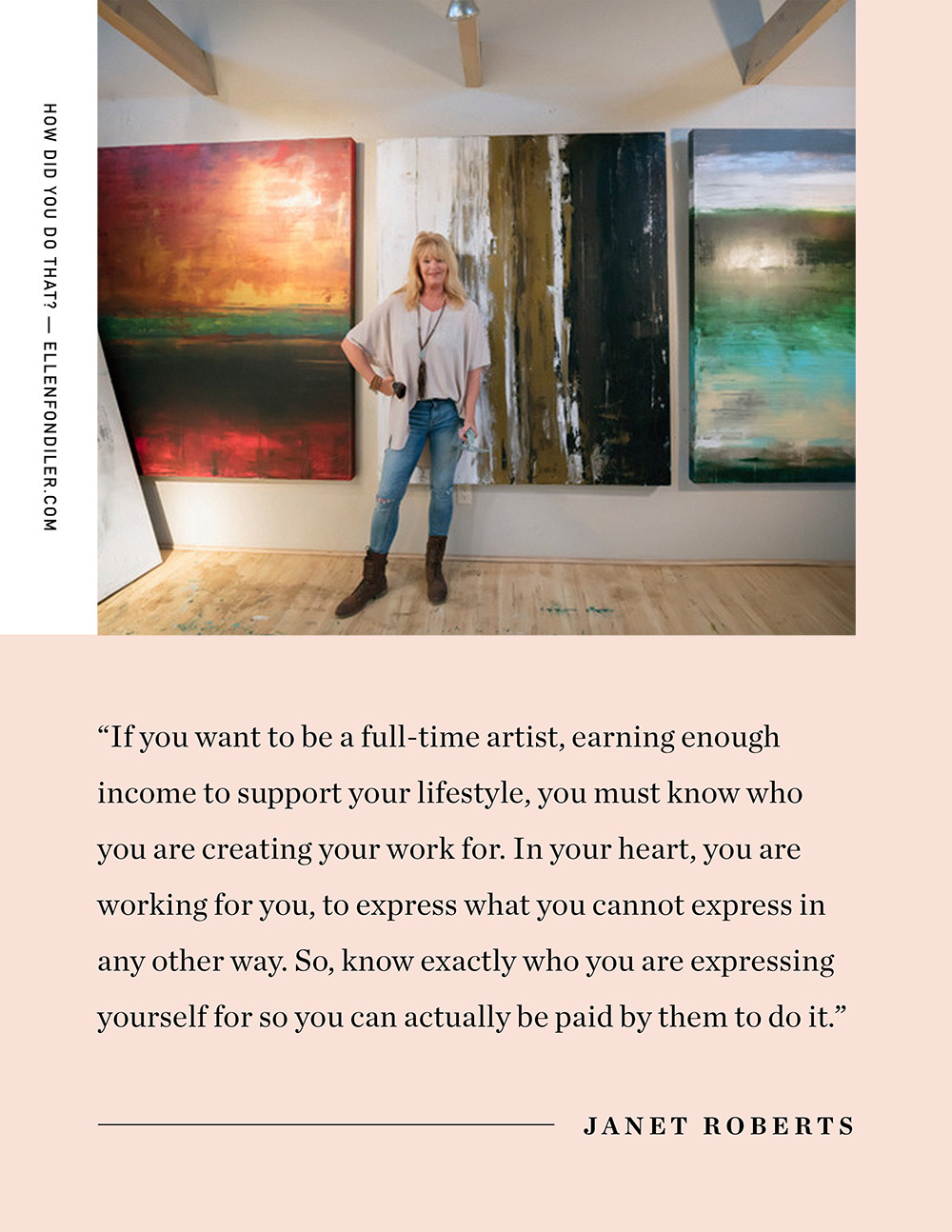
3 THINGS
What are 3 pieces of advice that you’d give to an aspiring artist?
1. Know your audience.
If you want to be a full-time artist, earning enough income to support your lifestyle, you must know who you are creating your work for. In your heart, you are working for you, to express what you cannot express in any other way. So, know exactly who you are expressing yourself for so you can actually be paid by them to do it.
I know my audience are predominantly female, over 35, and seekers. They are open hearted, open-minded, women who do yoga, meditate, have children, a career, they travel, are curious, active, and know love. Each of them shares a similar constitution. None of them voted for Trump.
2. Do the work.
Don’t talk about creating or watch others create or spend too much time looking at art others created. You must create. Do it. Every day make something. Paint something. Write something. Compose something. Sculpt something. Every day. Just do the work. Discipline. Sacrifice. Commitment.
My friends who are part-time artists, and far more talented than I am, ask me how I do it. How does it work? I explain that when I work every day, eight hours a day in my studio, just like my husband does in his office, the money simply rains on me. The emails arrive, the phone rings, the inquiries are fielded. When I stop working, and the energy is suspended, and my studio is quiet, and I am not “in it,” the money flow ceases. It is like magic. As if the ‘Imagination God’ rewards those who do and not those who don’t. So, just do the work.
3. The power of Manifestation is real.
When I meditate each morning and evening, I place in my head and heart the life I imagine and desire. I ask the Universe for only that which I feel I deserve, always considering my service to others, and I am very specific about what I and what others in my life need. And so far, since beginning this practice thirty years ago, it has been a very powerful tool toward my fulfillment and success.
Give yourself time each day to ask for what you need, be specific, and work toward that goal. Assist the angels who are listening. Together, this practice has proven extraordinary. Write it down, express it within yourself, make it real. Manifest it. Believe in it. Ask for it. Deserve it. Guide it. Enable it. For it is truly yours for the asking.
ONE MORE THING…
Do you have “one more quick question” that you’d like to ask Janet? Email me and tell me what you want to know! I might choose your question for my ONE MORE THING… Podcast (Coming soon!!!)
YOUR #1 CAREER GOAL: ACHIEVED
Do you need some encouragement to help you achieve a big, daunting career goal? Would you like to have a career coach/strategist in your corner—feeding you ideas that you’d never considered before, helping you figure out who to contact, and what to say, and checking in to make sure you don’t procrastinate? If so… click here to find out how we can work together. I’d love to coach you!
![]()

